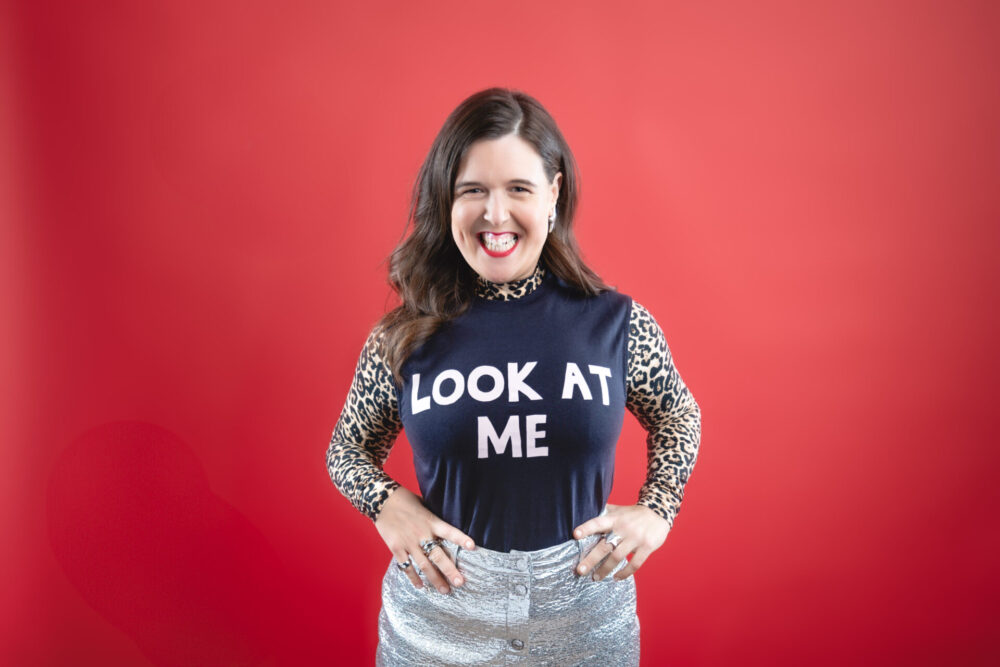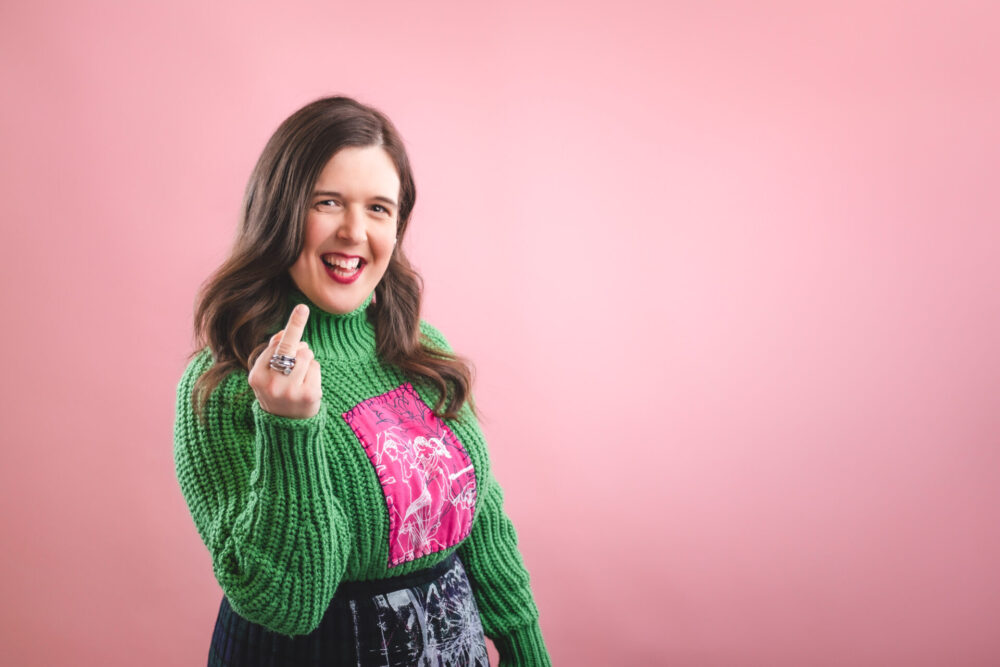The comedian, writer, actor and charity founder speaks to Editor Melissa Holmes to reflect on her busy year so far

Our online interview starts with a technical glitch: Rosie’s camera isn’t working. “Well, if you want to imagine me naked…” she starts. We both erupt into laughter. That one liner sets the tone for an hour of chat about everything from growing up with Cerebral Palsy in a small Yorkshire coastal town, to benefit cuts, the importance of therapy, the joy of live comedy, and gravy.
2025 is nowhere near over, and Rosie has had one of her busiest years yet. What’s been the standout part for her? “Oh no!” she exclaims. “You can’t make me choose my favourite out of all my babies. They’ve all been incredibly special for different reasons.”
Rosie describes the screening of her sitcom, Pushers, as a milestone moment. “When I became a comedian, it was always my dream to have my own sitcom,” she reveals. “I grew up watching Dinnerladies, The Royle Family, The Vicar of Dibley – all helmed by these amazing female writers and comedians.”
Then there’s the upcoming tour. In 28 venues across the UK, Rosie will perform the stand-up she’s become known for. “I love my job,” she grins. “I love writing. I love acting. I love doing panel shows. But stand-up comedy is my first and the one true love of my life. There’s nothing like seeing the joy when one of your jokes that you spent hours perfecting and altering works in front of a live crowd.”
SEEING IS BELIEVING
“The main theme I focus on in this tour is representation and how that affects how I see myself,” Rosie outlines. “A big thing for me is I’m now 35, and I’ve never truly been in a relationship because I grew up in a world where I never saw a healthy representation of a disabled person in a loving, happy, healthy, romantic relationship. If you never see it, how can you believe it could ever happen for you?” she ponders.
That ‘If you don’t see it, how can you be it?’ approach is one of Rosie’s main drivers for touring, especially since she does after-show meet and greets. “It really feels special to me that a high percentage of my audience is disabled and/or queer,” she tells me. “If, at 16, I’d seen a stand-up with the same disability as me, or a queer comic I could relate to, that would’ve been such a gamechanger.”

SOMETHING BIGGER
Rosie’s standout moment so far in 2025 has been launching The Rosie Jones Foundation. “I’ve always been passionate about promoting other disabled people and lifting their voices,” she reveals. “I love my job, I love telling jokes, but I always wanted to do more – something bigger than me, to make the world a better place for everyone, but in particular for people with Cerebral Palsy [CP].” That ‘something bigger’ turned into The Rosie Jones Foundation.
“You’re much more likely to suffer from depression if you’ve got a physical disability, so our first aim is to help people with CP have better opportunities when it comes to mental health,” she explains. “We’re working with an amazing company called Disability Plus. It matches people to a counsellor or therapist with the same disability, which is huge.”
As someone who’s been through therapy with non-disabled counsellors, Rosie recognises it’s “incredibly difficult to get across how it feels to step outside every day into a world that isn’t set up for you.” By seeing a therapist with whom you share common ground, sessions can be more therapeutic, and Rosie is on a fundraising mission to support that. “For every £6,000 we raise, we can fund 100 counselling sessions for people with CP to see counsellors with CP,” she says, purposefully.
MORE PALATABLE
Why is this such a passion project for Rosie? Growing up, she explains, the world wasn’t switched on to ableism and mental health like it is now. She reflects: “It was a coping mechanism and almost a badge of pride that I would say to people ‘Hello, I’ve got CP but don’t worry, it’s only a physical disability, it doesn’t affect my brain. I’m really happy, I wouldn’t have it any other way’. In hindsight, that was a lie. I didn’t say that for myself. I said it to make my disability more palatable for other people.”
After five years of therapy, she’s “Still that happy, positive, funny person – it’s in my DNA, I cannot help that. But like every human being, I will fall over, or I will get abuse online or in the street. I’m a victim of ableism. And now, instead of apologising for making something awkward, I feel strong enough and I like myself enough to say ‘No – I don’t deserve that, that is ableist. I’m angry and sad. Here’s what you need to do in this situation to make it better’.”

Now able to recognise her worth, Rosie knows her disability isn’t her fault: “I am done apologising for it,” she states. “It’s up to non-disabled people to educate themselves, to be allies and to stand with us. Never talk for us, but to stand with us, support us, and make the world a better place for disabled people. We’ve all got voices. Stand up – we can all make a difference.
Rosie will be appearing at venues across the UK from 9 September as part of her tour I Can’t Tell What She’s Saying. Visit rosiejonescomedy.com for tickets.
Follow Rosie on Instagram.
The Rosie Jones Foundation: rosiejonesfoundation.com.
